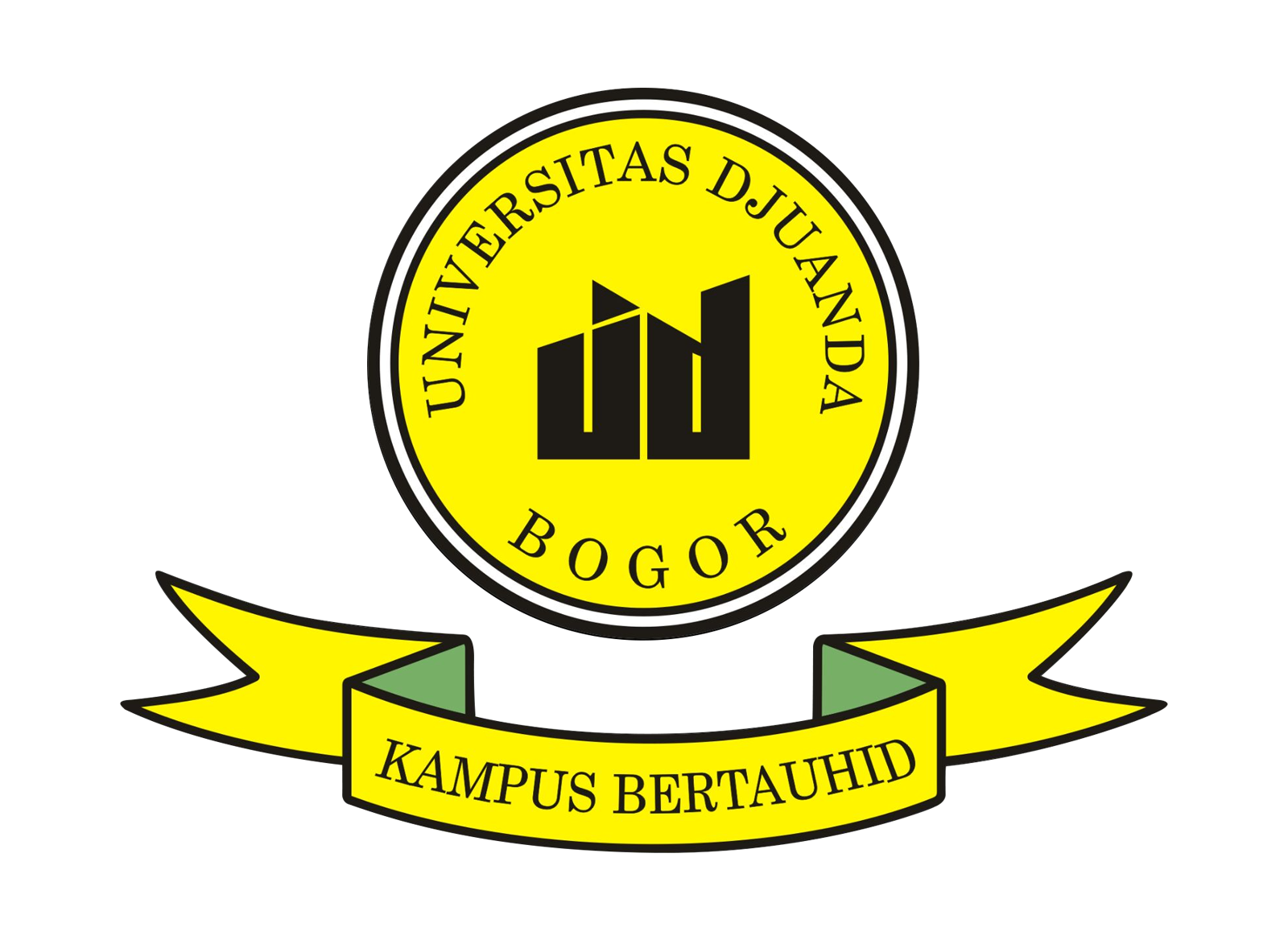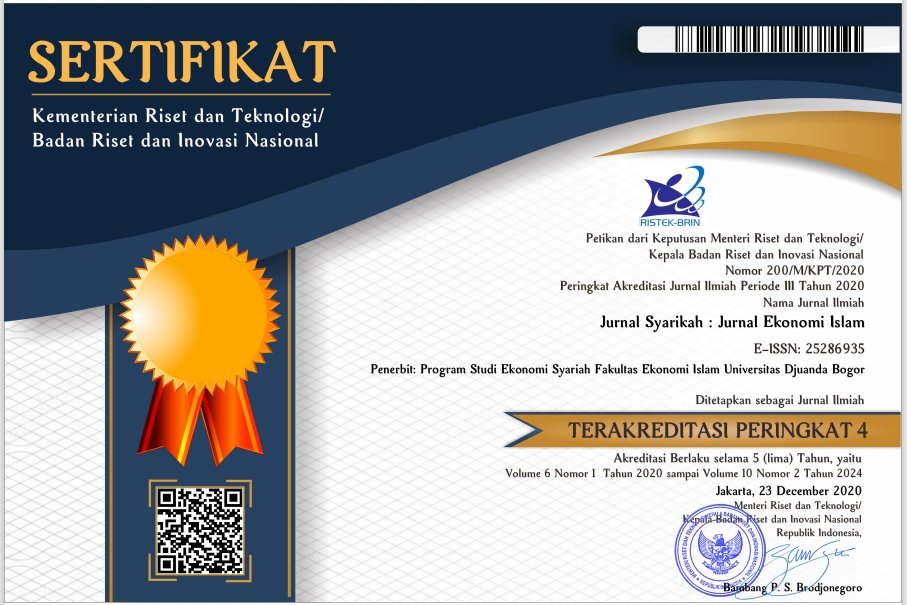PERSEPSI WISATAWAN TERHADAP PULAU BALI SEBAGAI DESTINASI WISATA RAMAH MUSLIM
DOI:
https://doi.org/10.30997/jsei.v9i1.7783Abstract
The island of Bali is a tourist destination where the majority of the population is Hindu. On the other hand, many Muslim tourists visit the island of Bali and need services that are in accordance with the needs and rules of a Muslim. The purpose of this study was to determine the level of Muslim friendliness in Bali Island and to analyse the factors that influence tourists' perception of Bali Island as a Muslim friendly tourist destination. This study used primary data with 100 respondents and analysed using descriptive statistics and logistic regression. The results of the study indicate that the factors that influence tourists' perceptions of Bali Island as a Muslim-friendly tourist destination are the availability of halal food and beverages, prayer facilities, and accommodation.
References
[BPS] Badan Pusat Statistik 2019. Jumlah Perjalanan Wisatawan Nusantara (Orang) 2015-2019 [Internet]. [Diunduh 2022 Januari 10]. Tersedia pada: https://www.bps.go.id/indikator/indikator/view_data/0000/data/1189/sdg_8/ 2
[DSN MUI] Dewan Syariah Nasional 2016. Pedoman Penyelenggaraan Pariwisata Berdasarkan Prinsip Syariah [Internet]
[GMTI] Global Muslim Travel Index. 2016. Laporan GMTI 2016. [internet]. [Diunduh pada 8 Januari 2022]. Tersedia pada : www.gmti.crescentrating.com
[KEMENPAREKRAF] Kementrian Pariwisata dan Ekonomi Kreatif 2019. Outlook Pariwisata & Ekonomi Kreatif Indonesia, 2019 [Internet]. [Diunduh 2022 Januari 12].Tersedia pada: https://bankdata.kemenparekraf.go.id/upload/document_satker/a6d2d69c805 6a29657be2b5ac3107797.pdf
[LPEM FEB UI] Lembaga Penyelidikan Ekonomi dan Masyarakat Fakultas Ekonomi dan Bisnis UI. 2018. Kajian Dampak Sektor Pariwisata Terhadap Perekonomian Indonesia
[WORLD TRAVEL & TOURISM COUNCIL] Lembaga Data Pariwisata Dunia. 2020. Laporan Dampak Pariwisata Terhadap GDP dan Sumber Daya Manusia.
Firdaus A., et. al. 2011. Managing Costumer Preference for the food service Industry. International journal of innovations, management, and technology. 2(6).
JafarI. 2014. Muslim world and its tourisms. Annals of Tourism Research Volume 44 konsumen terhadap hotel syariah. Jurnal Syarikah: Jurnal Ekonomi Islam. 2(1):180–192
Juanda B. 2009. Ekonometrika Pemodelan dan Pendugaan. IPB Press: Bogor.
Muhson A. 2006. Teknik Analisis Kuantitatif. http://www.staf.uny.ac.id/sites.
Narendra, W. 2018. Identifikasi Kebutuhan Sarana Dan Prasarana Wisata Berdasarkan Persepsi Pengunjung Di Pantai Sipelot Kabupaten Malang (Doctoral dissertation, Institut Teknologi Nasional Malang)
Samori Z, Salleh NZM, Khalid MM. 2016. Current trends on Halal tourism: Cases on selected Asian countries. Tourism Management Perspectives. 19: 131-136
Schwab K. 2017. The Travel and Tourism Competitiveness Reposrt 2017. Geneva: the World Economic Forum
Siregar, S. 2013. Metode Penelitian Kuantitatif. Jakarta: PT Fajar Interpratama Mandiri.
Wahyulina, Sri dkk. 2018. Persepsi Wisatawan Muslim Terhadap Sarana Penunjang Wisata Halal di Kawasan Desa Sembalun Lawang Lombok Timur. Jurnal Magister Manajemen Universitas Mataram. 4(2): 3-4.
Downloads
Published
How to Cite
Issue
Section
License
Copyright (c) 2023 Jurnal Syarikah : Jurnal Ekonomi Islam

This work is licensed under a Creative Commons Attribution-ShareAlike 4.0 International License.
Authors who publish with Jurnal Syarikah: Jurnal Ekonomi Islam agree to the following terms:
- Authors retain copyright and grant the journal right of first publication with the work simultaneously licensed under a Creative Commons Attribution 4.0 International License that allows others to share the work with an acknowledgement of the work's authorship and initial publication in Jurnal Syarikah: Jurnal Ekonomi Islam.
- Authors are able to enter into separate, additional contractual arrangements for the non-exclusive distribution of the journal's published version of the work (e.g., post it to an institutional repository or publish it in a book), with an acknowledgement of its initial publication in Jurnal Syarikah: Jurnal Ekonomi Islam.
- Authors are permitted and encouraged to post their work online (e.g., in institutional repositories or on their website) prior to and during the submission process, as it can lead to productive exchanges, as well as earlier and greater citation of published work
SURAT PERNYATAAN PEMINDAHAN HAK CIPTA[1]
Yang bertanda tangan di bawah ini adalah penulis naskah yang berjudul:
yang diajukan untuk dipublikasikan pada Jurnal Syarikah : Jurnal Ekonomi Islam ISSN 2442-4420 menyatakan bahwa:
Kami bersedia memindahkan hak publikasi, distribusi, reproduksi, dan menjual naskah kamiyang berjudul tersebut di atas sebagai bagian dari Jurnal Syarikah kepada Dewan Redaksi Jurnal Syarikah : Jurnal Ekonomi Islam ISSN 2442-4420
Demikian surat pernyataan ini saya buat dengan sadar, penuh rasa tanggung jawab, dan tanpa paksaan dari pihak mana pun!
No | Nama Penulis (lengkap dengan gelar akademik) | Nama dan Alamat Institusi, email | Tanda Tangan | Tanggal |
1 |
|
|
|
|
2 |
|
|
|
|
3 |
|
|
|
|
4 |
|
|
|
|
5 |
|
|
|
|
[1] Dikirim ke Dewan Redaksi Jurnal Syarikah, Program Studi Ekonomi Islam Fakultas Ekonomi Islam Universitas Djuanda Bogor, Gedung B Lantai IV Jl Tol Ciawi No. 1 Kotak Pos 35 Ciawi Bogor 16720, difaksimilikan ke 02518240985, dan hasil scanning-nya diemailkan ke Jurnal.Syarikah@unida.ac.id


